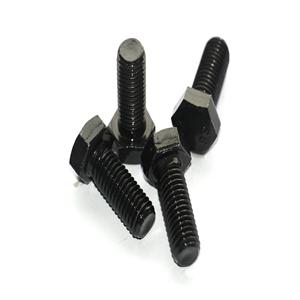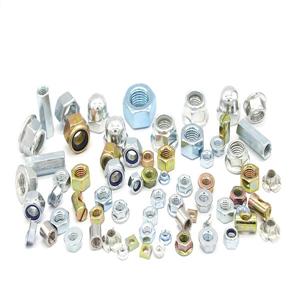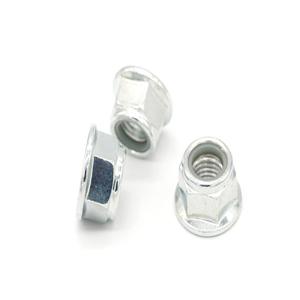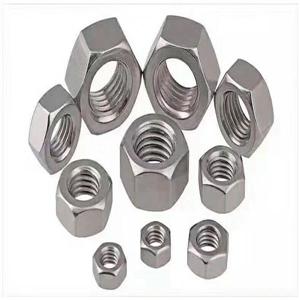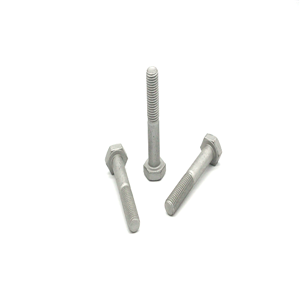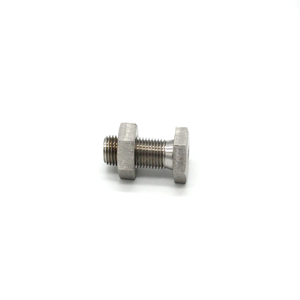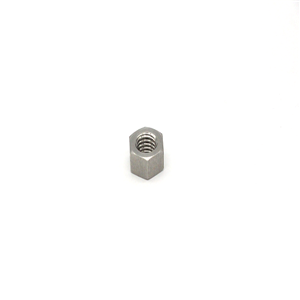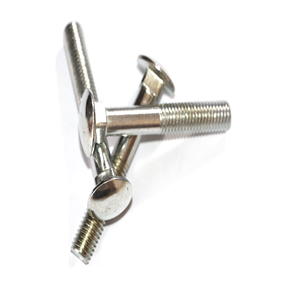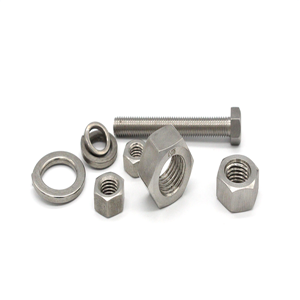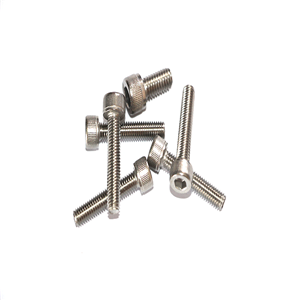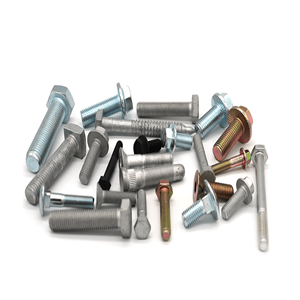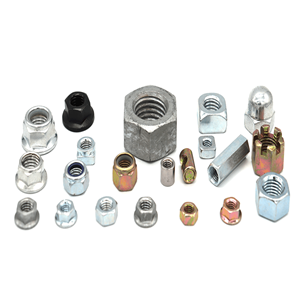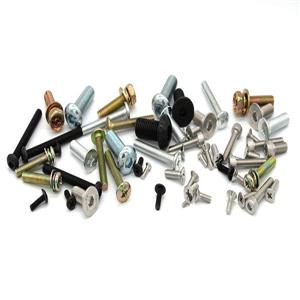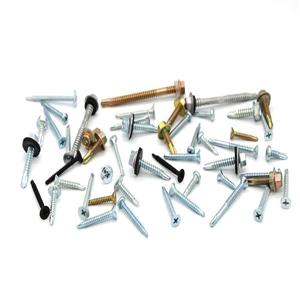-
0604-2020
Discussion on the use of high-strength fasteners ...
As a key functional part, high-strength fasteners play an important role in the function realization and safe operation of mechanical products. The correct use of high-strength fasteners is a link that cannot be ignored in the design and manufacture of mechanical products. At present, there is no unified method for the use of high-strength fasteners, and the practices of different industries and units are different. Therefore, it is necessary to communicate with each other and develop a scientific method of use to guide the design, manufacture, assembly and maintenance of products. Ensure the safe and stable operation of machinery. After researching and testing high-strength fasteners, this article summarizes the general use methods of high-strength fasteners from the aspects of characteristics, application, selection and assembly. Fasteners have a wide variety of specifications, large usage, and a wide range of applications. They are the most common type of standard parts in mechanical products. The reasonable selection of fasteners has also become an important part of the product design process. The correct use of the product directly affects the product's functional realization and safe operation. Compared with general fasteners, the use requirements of high-strength fasteners in product design, manufacturing, assembly, inspection and maintenance are very different. They also play a more critical role in the operation of equipment. Under the situation of diversified development such as large-scale, automation, and intelligence, high-strength fasteners are increasingly used as key functional parts, especially in critical occasions and important parts. At present, in the selection and use of high-strength fasteners, there are still various opinions and insufficient understanding, and it is necessary to do further research. This article mainly discusses the use of high-strength fasteners for mechanical products, and will not discuss the use of high-strength fasteners to replace general fasteners.
-
1203-2020
Materials for fastener production: differences between 304, 304L, 316 and 316L
Stainless steel is a type of steel. Steel refers to those containing less than 2% carbon (C), which is called steel, and more than 2% is iron. Adding chromium (Cr), nickel (Ni), manganese (Mn), silicon (Si), titanium (Ti), molybdenum (Mo) and other alloy elements during the smelting process of the steel improves the performance of the steel and makes the steel corrosion resistant (Ie no rust) is what we often say about stainless steel.
-
1103-2020
Introduction of alloy steel for fastener products
alloy steel In addition to iron and carbon, other alloy elements are added to the steel, which is called alloy steel. An iron-carbon alloy formed by adding an appropriate amount of one or more alloying elements to an ordinary carbon steel. According to the different added elements, and adopt appropriate processing technology, can obtain high strength, high toughness, wear resistance, corrosion resistance, low temperature resistance, high temperature resistance, non-magnetic and other special properties.
-
0903-2020
Introduction of Monel to fastener production materials
Monel is also called nickel alloy. It is an alloy based on metallic nickel and adding other elements such as copper, iron, and manganese. Has many excellent characteristics.
-
0703-2020
Inconel alloys introduction of fastener product materials
Inconel alloys are generally known for their resistance to oxidation and their ability to maintain their structural integrity in high temperature atmospheres. There are several Inconel alloys that are used in applications that require a material that does not easily succumb to caustic corrosion, corrosion caused by high purity water, and stress-corrosion cracking. While each variation of Inconel has unique traits that make it effective in different circumstances, the majority of the alloys are used frequently in the chemical industry. Inconel 601 is a nickel-chromium alloy that has additions of aluminum. These additions increase its resistance to oxidation and various forms of corrosion. This has made Inconel 601 a common material in heat treating equipment, furnaces, and gas-turbine components. Inconel 690 has a similar makeup to 601, but it is considered a high chromium-nickel alloy. The high chromium content in 690 makes it especially resistant to corrosion that occurs from salts, oxidizing acids, and other elements commonly found in aqueous environments. Inconel 625 differs from many of the other Inconel alloys because its composition includes substantial amounts of nickel, chromium, and molybdenum. It also has an addition of niobium. The result is an alloy that possesses high levels of strength without ever having to go through a strengthening heat treatment. Inconel 625 is especially effective at resisting crevice corrosion, making it a chosen material in the aerospace and marine engineering industries.
-
0303-2020
Introduction to stainless steel fasteners (2)
Stainless steel standard parts have their own requirements for raw materials. Most stainless steel materials can be made into steel wire or bar for fastener production, including austenitic stainless steel, ferritic stainless steel, martensitic stainless steel, precipitation hardening stainless steel. So what are the principles when selecting materials?
-
0203-2020
Introduction of Hastelloy materials for fastener products
Hastelloy C-276 alloy is a tungsten-containing nickel-chromium-molybdenum alloy with extremely low silicon-carbon content and is considered to be a universal corrosion-resistant alloy.
-
2802-2020
Introduction of stainless steel fasteners (1)
"Stainless steel fasteners" is a specific term concept covering a wide range of products. Stainless steel fasteners are often used for fastening of more expensive machine parts because of their beauty, durability, and strong corrosion resistance. With the progress of society, higher requirements have been put forward for stainless steel standard parts.

